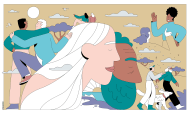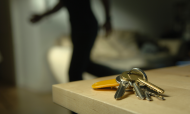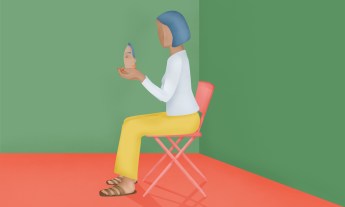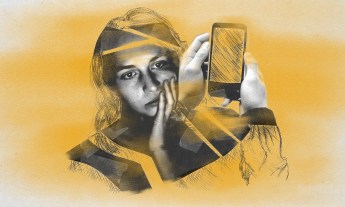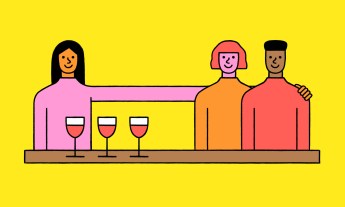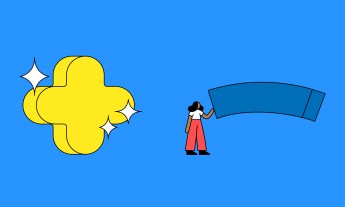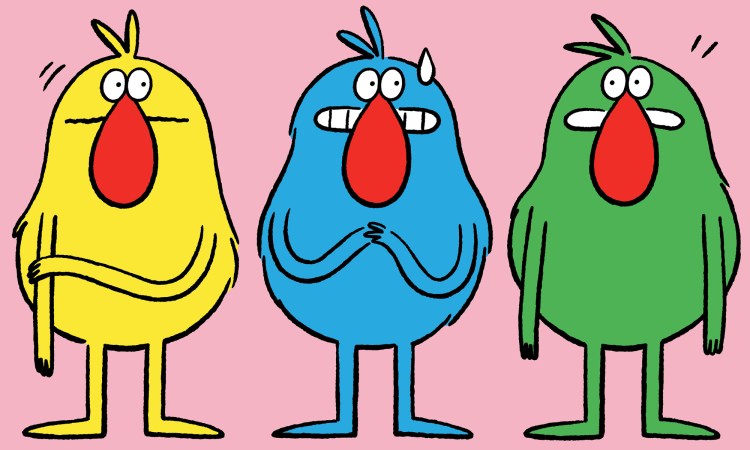
This post is part of TED’s “How to Be a Better Human” series, each of which contains a piece of helpful advice from people in the TED community; browse through all the posts here.
Everyday magic, according to author Charles de Lint, is built through “inexplicable connectedness”, those moments of synchronicity when you realize you’re not alone. But despite humans’ hard-wired need for connection, the past year has been defined by disconnection — whether it’s from our loved ones, routines, schools and workplaces. And because the brain’s responses to isolation and hunger are remarkably similar, one could argue that we are literally starved for connection.
Fortunately, as parts of the world slowly begin to beat back COVID, connecting and gathering are becoming possible again. (No matter how awkward these first encounters may be!)
For my introverted self, a moment that might have been mildly stressful pre-COVID initiated a full-on freak-out.
I don’t know about you, but while it’s been incredible to reconnect with my favorite people and routines, I’ve been shocked by the sheer stress of re-entry. As an organizational psychologist who coaches top executives in high-pressure roles, I figured I’d be better equipped than most to handle this challenge.
I was completely wrong.
Take what happened last month. My mother and stepfather generously invited me and my husband to spend Mother’s Day weekend at a local resort. For weeks before, the mere thought of the four of us lounging around the hotel, safe and fully vaccinated, made me downright giddy.
But on Friday when we walked into the lobby, my eyes grew wide at the sight and sound of … people. A massive number of people. People were everywhere — guests chatting in the check-in line, bellhops squeezing luggage carts through the crowd, kids playing on the floor.
For my introverted self, a moment that might have been mildly stressful pre-COVID initiated a full-on freak-out. Outwardly, I tried to appear calm but internally I was in fight-or-flight mode. My husband’s forced smile suggested he felt similarly.
Then an angel — my mother — appeared with our key card and whisked us away to our mercifully quiet room. As I sat on the bed and took several deep breaths, my husband said something that was both ridiculously obvious and incredibly insightful: “Wow. We haven’t done that in a while!”
While a one-off freak-out shouldn’t be cause for concern, the inability to regulate our negative emotions harms our mental and physical health over time.
For more than a year, we’d had zero practice navigating crowds. What used to be a daily event was now overwhelming precisely because it was so unfamiliar.
And while a one-off freak-out shouldn’t be cause for concern, the inability to down-regulate our negative emotions — that is, consciously reduce their intensity — harms our mental and physical health over time.
Which is all to say: Now is a great time to expand our psychological first-aid kits.
Thankfully, I’ve spent almost two years researching how stress can make us stronger, and there’s one tool virtually designed for this moment. In fact, it’s so easy it might feel like cheating — it isn’t.
Over the years, researchers have looked into the best way to quickly quell stress-induced emotions. One approach beats them pretty much every time. It’s distraction — focusing on a task that’s unrelated to the source of our stress. One example is memorizing a set of numbers.
Focusing on completing a task makes it virtually impossible for us to also focus on being upset — which then makes us less upset.
Why does distraction beat distress? Since we can only keep a few things in our minds at any given time, focusing on completing a task makes it virtually impossible for us to also focus on being upset — which then makes us less upset.
And while any activity that requires focus can be an effective candidate — including activities like reading or exercising — the most effective distractions involve active mental effort. That’s why playing Sudoku is better than watching Seinfeld. (Fun fact: Adult coloring books work too.)
As I recalled this research in my hotel room, I remembered that I had stashed a crossword puzzle in my overnight bag. After taking it out, it proved to be a shockingly quick and helpful antidote for my lobby-induced stress.
Self-compassion can be a powerful tool that helps us be less hard on ourselves when experiencing stress, suffering or failure.
But research has shown that distraction on its own isn’t nearly as helpful as distraction followed by self-insight. So once the crossword had worked its down-regulating powers, I took a cue from the highly self-aware people that I’d studied for my book Insight and asked myself three simple questions to gain some perspective about the situation:
- What emotions was I feeling in that moment?
- What was most stressful about that situation?
- What would I do differently next time?
Answering these questions didn’t just help me prepare for my next trip or outing; they gave me a welcome dose of self-compassion too. Self-compassion can be a powerful tool that helps us be less hard on ourselves when experiencing stress, suffering or failure. Plus, when we take a kinder, more understanding stance towards ourselves, we are more confident about and committed to our own personal growth in the future. This can be especially helpful for those of us who happen to be perfectionists.
Above all, finding the power to squash my stress that weekend sharpened my focus on what mattered most to me — the everyday magic of doing absolutely nothing with three people I love.
It reminds me of an Albert Schweitzer quote: “In everybody’s life, at some time, our inner fire goes out. It is then burst into flame by an encounter with another human being. We should all be thankful for those people who rekindle the inner fire.”
May the near future bring you connections that rekindle your inner fire.
This post was originally published in The Insight Bulletin, Dr. Eurich’s monthly newsletter. To sign up, go here. To learn more about Dr. Eurich’s work, follow her on LinkedIn, Twitter or Instagram.
Watch her TEDxMileHigh Talk now:


